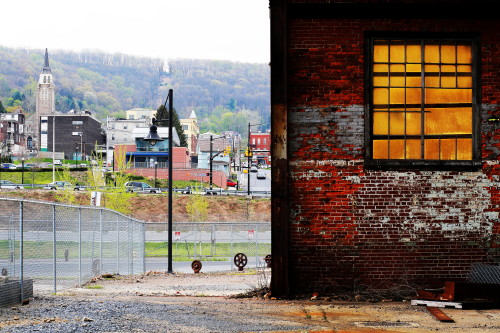The presidential debate in Miami recently may have been in Spanish, but still no candidate is speaking the lingua franca of American prosperity.
No one’s speaking about the economic assets of our nation — the innovative industries, universities, the healthcare concentrations and the skilled labor pools — and how these assets are at the heart of our metro areas. Places like Greater Miami, Orlando and Tampa are our nation’s economic centers and the key to future American competitiveness and success.
In Florida, the 5.5 million strong Miami metropolitan area contains about 31 percent of the state’s population but produces 35 percent of the state’s domestic product.
Yet, this outsize metropolitan productivity is rarely mentioned, let alone thought of as a starting point for improving the prosperity of the region and the state as a whole.
Florida’s economy, though, is relentlessly metropolitan. Its 19 metropolitan areas represent the third highest number in the nation and 94 percent of the state’s population. Miami, the setting for the recent Univision debate, is reflective of how metropolitan areas around the nation fuel their state economies but are also growing in unsustainable and socially divisive ways.
Right now, listening to presidential debates and reading candidate websites there’s precious little discussion of the challenges facing the modern metropolis in today’s fiercely competitive, ever-changing global economy.
Better Infrastructure
Our recent research underscores that four key assets — innovation, quality infrastructure, strong human capital and quality places — are needed today to drive productivity of firms and workers, improve the wealth and opportunities of our families, and ensure we grow in ways that protect our natural resources.
Yet, our federal government fails to leverage these assets, and assuredly our presidential aspirants are silent on how they intend to help our state and local leaders build on these assets.
As the candidates continue to campaign in Florida, and Miami in particular, they have a real opportunity to speak directly to the prosperity challenges facing this state and metro area.
For instance, a 21st century infrastructure system is critical to move goods, connect people to jobs and embrace our environment and land use goals.
In Florida, this is critical because rapid population growth is placing increased congestion on the roads and also challenging how we plan infrastructure while protecting dwindling open space and environmental resources like the Everglades.
Yet the feds spread transportation around like peanut butter with no sense of outcomes and accountability.
We also need strong human capital policies that help our workers gain the skills for the jobs of the future, but increasing income inequality and educational disparities in the state, particularly between racial and ethnic groups, go unaddressed or are addressed piecemeal.
We ignore this at our peril as by 2050 blacks and Latinos will make up 40 percent of our national workforce, a trend already well under way in metropolitan Miami.
With no overarching strategy, current federal spending on human capital and economic development is fragmented across 14 separate federal agencies and rarely serves the drivers of regional economies.
What America’s major metros need is a federal framework that focuses on outcomes — economic growth, environmental sustainability, social inclusion — and is agnostic on the means that would best deliver those outcomes.
Rather than work holistically, however, relevant federal policy on these issues is hopelessly balkanized into myriad programs working independently and often at odds with each other.
At Brookings we have launched a Blueprint for American Prosperity to set out new ways in which the federal government can be a better partner with state and local leaders to strengthen the nation’s economic centers, our metro areas, with productive jobs, a strong and diverse middle class, and environmentally sustainable growth.
As these are the building blocks of a prosperous 21st century America, it would be nice to hear those who would purport to lead the nation recognize it.



Commentary
Op-edTo Connect with Voters, Candidates Should Speak ‘Metro’
December 19, 2007